DARPA
-

New imaging approach offers unprecedented views of staph infection
A new integrated imaging approach makes it possible to probe the molecules involved in invasive infections and can be broadly applied to any health or disease state. Read MoreMar 15, 2018
-
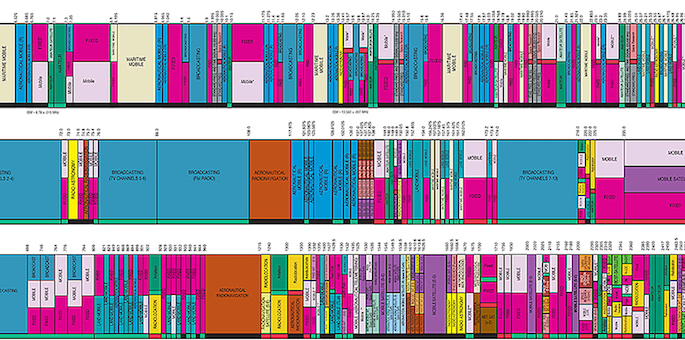
Vanderbilt wins top prize in first round of DARPA Spectrum Collaboration Challenge
The DARPA challenge seeks to uncover efficient solutions to our increasingly connected world's equally growing appetite for bandwidth. Read MoreJan 30, 2018
-

VUMC joins national effort to block global pandemics of potentially lethal viruses
The U.S. Defense Advanced Research Projects Agency (DARPA) has signed a five-year cooperative agreement worth up to $28 million with Vanderbilt University Medical Center (VUMC) to develop methods for preventing the global spread of viruses like chikungunya and Zika. Read MoreJan 11, 2018
-

VU joins national effort to speed Ebola therapy testing
Vanderbilt University researchers have joined a multi-center effort led by Pennsylvania-based Inovio Pharmaceuticals Inc. to accelerate development of potential antibody therapies against the often-lethal Ebola virus. Read MoreApr 8, 2015
-

Vanderbilt’s neurovascular chip project moves into new phase
Vanderbilt researchers will play a key role in the second phase of the federal "tissue chip for drug screening" program. Read MoreNov 18, 2014
-
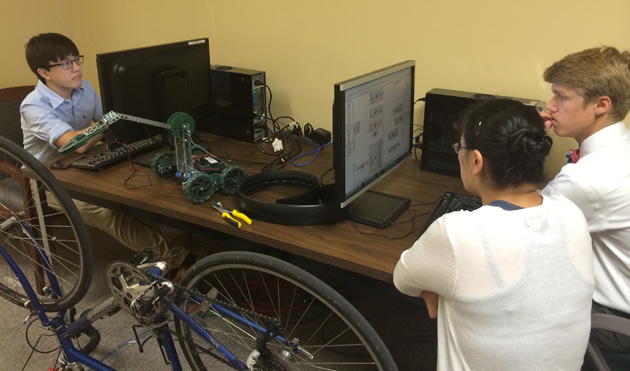
Metro students make bicycle models with high-tech tools
Thirteen Nashville public high school students are spending their summer mornings on the Vanderbilt campus building bicycle models using software tools developed to revolutionize the manufacturing of military vehicles. Read MoreJun 18, 2014
-

Significant progress toward creating “benchtop human” reported
Vanderbilt physicist John Wikswo reported significant progress toward creating “homo minutus” – a human-on-a-chip that can be used to test drugs and toxins – on Mar. 26 at the Society of Toxicology meeting in Phoenix. Read MoreMar 27, 2014
-

FoxNews.com: Researchers work to secure military smartphones
Soldiers in Afghanistan are experimenting with smartphones engineered to better protect operational data designed by scientists at Vanderbilt University’s Institute for Software Integrated Systems. Douglas Schmidt, professor of computer science, is quoted. Read MoreFeb 13, 2014
-

Vanderbilt wins top prize in second hurdle of Spectrum Challenge
After two days of live competition, a team of engineers from Vanderbilt’s Institute for Software Integrated Systems emerged as a top winner for their prototype software-defined radio that can communicate in adverse spectrum environments, and earned a $25,000 prize. Read MoreOct 9, 2013
-

Nashville Scene Innovations 2013: Tankstarter
Vanderbilt’s Institute for Software Integrated Systems (ISIS) was awarded a $9.3 million contract to develop a collaborative software so that other non-government teams could design a new amphibious tank for the Marine Corps. Sandeep Neema, research associate professor of electrical engineering, is quoted. Read MoreAug 9, 2013
-
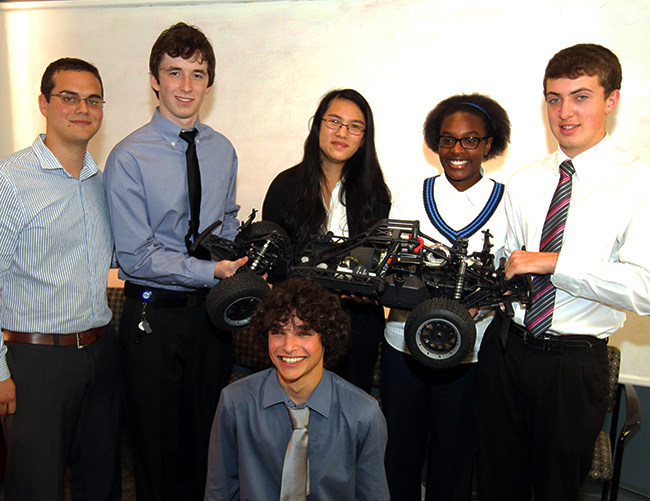
Summer interns produce aids for amateur inventors
Seven Nashville high school students spent their summer working on introductory manuals for a new suite of software developed at Vanderbilt’s Institute for Software Integrated Systems to democratize the vehicle design process. Read MoreJul 18, 2013
-

Vanderbilt wins $9.3M DARPA contract to evolve tools for military vehicle design
Vanderbilt University engineers in the Institute for Software Integrated Systems have been awarded a $9.3 million contract over two years to continue their work to mature META tools that are part of a flagship Defense Advanced Research Projects Agency Adaptive Vehicle Make (AVM) program. Read MoreMay 1, 2013
-
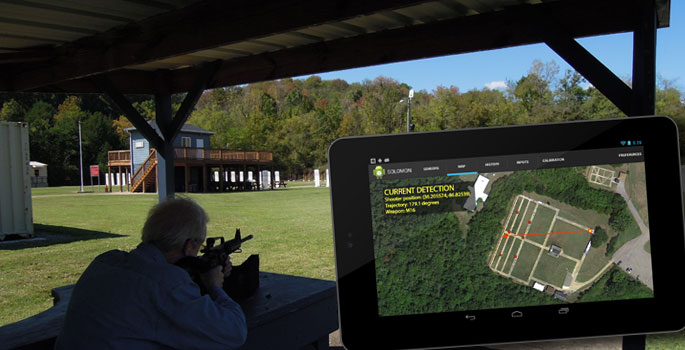
Tracking gunfire with a smartphone
A team of computer engineers from Vanderbilt University’s Institute of Software Integrated Systems has developed an inexpensive hardware module and related software that can transform an Android smartphone into a simple shooter location system. Read MoreApr 25, 2013
-
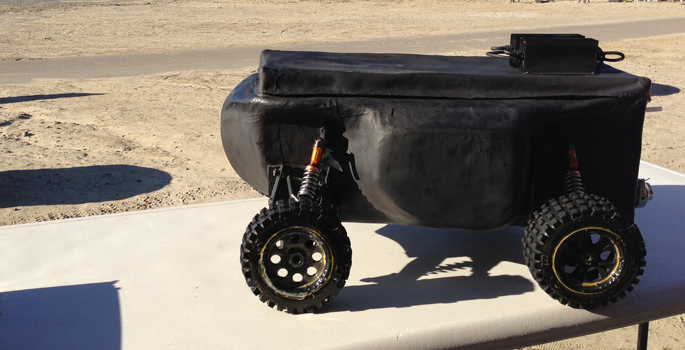
Vanderbilt student team competes in amphibious vehicle race
A team of engineering undergraduates designed and built a one-fifth-scale model of an amphibious vehicle that competed successfully in a national competition sponsored by the Defense Advanced Research Project Agency held in mid-January. Read MoreJan 31, 2013
-
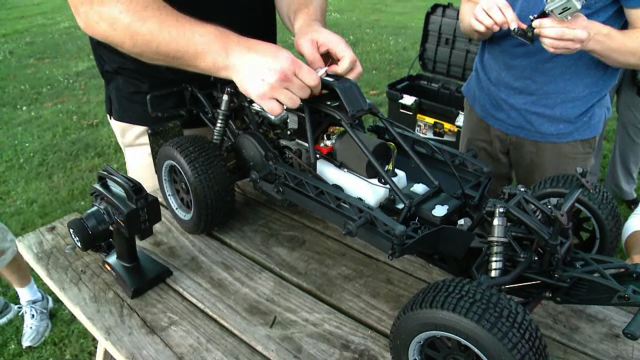
Watch Students Work on Virtual Military Design Project
See how Vanderbilt University engineering students are driving the next big idea for the U.S. military. [vucastblurb]… Read MoreJan 24, 2013
-

ISIS plays key role in efforts to revolutionize military manufacturing
This week the Defense Advanced Research Project Agency (DARPA) released a set of engineering software tools designed to revolutionize the process of designing and manufacturing military vehicles. Software engineers at Vanderbilt's Institute for Software Integrated Systems are playing a key role in the effort. Read MoreJan 18, 2013
-

Wired: DARPA opens source code for building your own amphibious tank
The DoD’s DARPA group plans to release open-source software that will let anyone design and run virtual tests on their own amphibious vehicle. Darpa’s software — built in part by researchers at Vanderbilt University — is called Meta. Read MoreJan 10, 2013
-
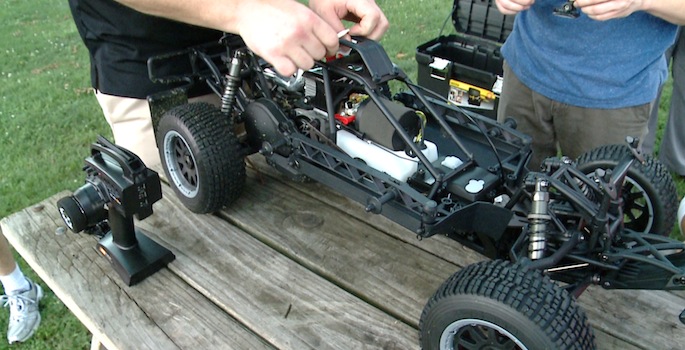
Vanderbilt plays role in contests to build Marine combat vehicle
The Defense Advanced Research Projects Agency (DARPA) recently launched FANG Challenges, a set of three next-generation military vehicle design competitions with up to $4 million in prizes to build a new amphibious combat vehicle specifically for the Marine Corps. Vanderbilt’s Institute for Software Integrated Systems (ISIS) is playing a significant role in the contests. Read MoreOct 31, 2012
-

VUCast: New Show Shines!
This Week on VUCast, Vanderbilt’s online newscast: The Vanderbilt connection to the new TV hit Nashville! How your smartphone could start saving lives. How music is going to the HEART of the Vanderbilt University Medical Center [vucastblurb]… Read MoreOct 11, 2012
-

Undergrads virtually manipulate model car for fast design changes
The goal of the Adaptive Vehicle Make program is to develop software to test vehicle designs before they are built. Read MoreOct 5, 2012